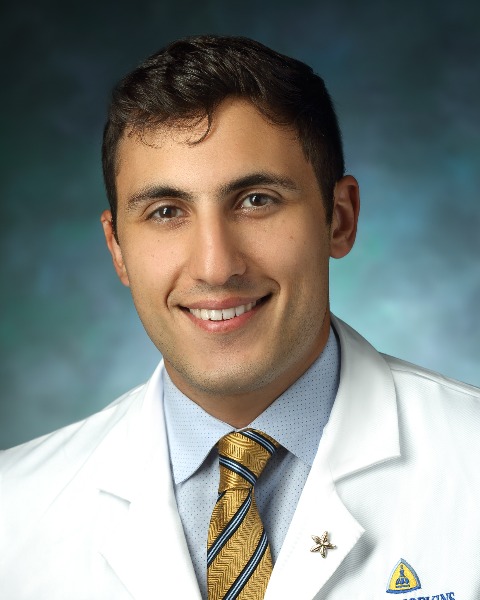Back
Poster Session D - Tuesday Morning
D0179 - Anal Cancer Screening Practices in Liver Transplant Centers Across the United States: A Nationwide Practice Study
Tuesday, October 25, 2022
10:00 AM – 12:00 PM ET
Location: Crown Ballroom

Eric Moughames, MD
Johns Hopkins University School of Medicine
Baltimore, MD
Presenting Author(s)
Introduction: Transplant recipients are at an increased risk of developing anogenital Human Papillomavirus (HPV)-related disease, including anal high-grade squamous intraepithelial lesions (HSIL) and cancer compared with the general population, largely due to impaired cell-mediated immunity. There are currently no well-established guidelines for anal cancer screening in this population, and timely primary and secondary prevention practices remain scarce. The aim of this study is to understand the knowledge, attitudes, and practices of anal cancer screening in adult liver transplant candidates and recipients at transplant centers across the United States (U.S.).
Methods: An online questionnaire was created that consists of four sections, with questions on the transplant center’s practices regarding anal cancer screening, barriers, facilitators and needs with regard to anal cancer screening, and HPV vaccination. The survey was sent to medical directors with publicly available emails from liver transplant centers across the U.S (n=113).
Results: We received a total of 20 responses (18% response rate), from liver transplant centers across the U.S. of which 2 were incomplete and were not included in the analysis (Figure 1). Half of the responses (n=9) were from large transplant centers performing more than 100 transplants per year. Out of all responses, only 2 centers have formal guidelines for anal cancer screening, 7 centers perform screening without formal guidelines, 6 centers do not screen and 3 centers responded “not sure” of the current practices. All respondents believe that data on the impact of screening on anal cancer incidence would support decisions on screening, and access to specialists for screening/high-resolution anoscopy (HRA) would be helpful or very helpful on a 5-point Likert Scale. Regarding screening practices, 3 centers perform anal cytology followed by HRA for abnormal results, and 3 centers perform HRA for all screened patients. Only 5 centers assess HPV vaccination history regularly.
Discussion: Results from a cohort of liver transplant centers from around the country reveal non-standardized anal cancer screening practices among transplant centers. These results underscore the urgent need for better data on anal cancer screening in transplant populations as well as for access to specialist care. The results may help catalyze a more standardized screening approach to anal cancer screening in transplant patients.
Methods: An online questionnaire was created that consists of four sections, with questions on the transplant center’s practices regarding anal cancer screening, barriers, facilitators and needs with regard to anal cancer screening, and HPV vaccination. The survey was sent to medical directors with publicly available emails from liver transplant centers across the U.S (n=113).
Results: We received a total of 20 responses (18% response rate), from liver transplant centers across the U.S. of which 2 were incomplete and were not included in the analysis (Figure 1). Half of the responses (n=9) were from large transplant centers performing more than 100 transplants per year. Out of all responses, only 2 centers have formal guidelines for anal cancer screening, 7 centers perform screening without formal guidelines, 6 centers do not screen and 3 centers responded “not sure” of the current practices. All respondents believe that data on the impact of screening on anal cancer incidence would support decisions on screening, and access to specialists for screening/high-resolution anoscopy (HRA) would be helpful or very helpful on a 5-point Likert Scale. Regarding screening practices, 3 centers perform anal cytology followed by HRA for abnormal results, and 3 centers perform HRA for all screened patients. Only 5 centers assess HPV vaccination history regularly.
Discussion: Results from a cohort of liver transplant centers from around the country reveal non-standardized anal cancer screening practices among transplant centers. These results underscore the urgent need for better data on anal cancer screening in transplant populations as well as for access to specialist care. The results may help catalyze a more standardized screening approach to anal cancer screening in transplant patients.
